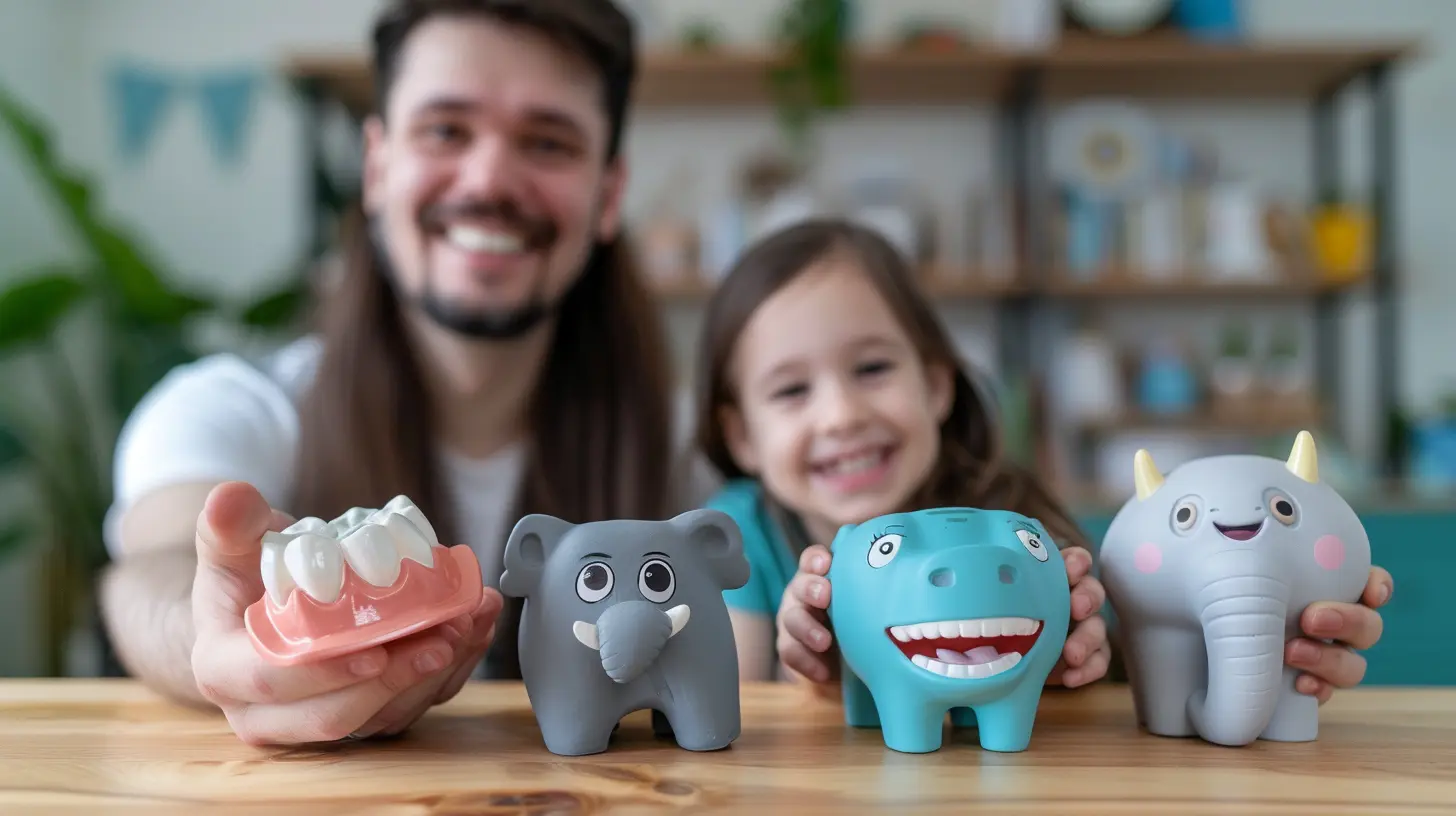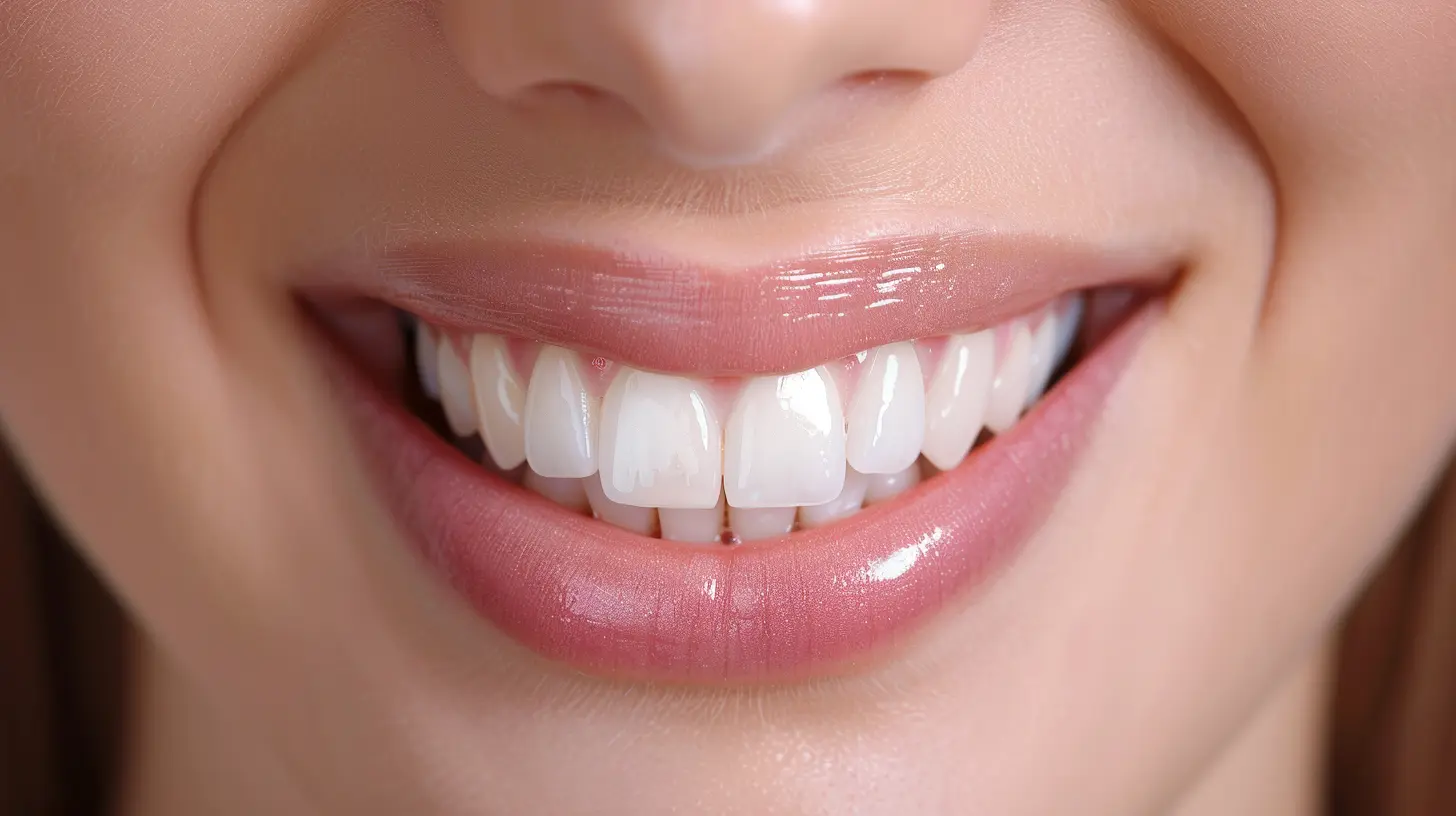Strong Teeth, Happy Smiles: The Importance of Dental Care for Children
12 June 2025
When it comes to raising happy, healthy kiddos, we often think about nutritious meals, outdoor play, and enough sleep. But there’s one thing that often slips under the radar—your child’s dental care. Yep, those tiny teeth deserve just as much love and attention as any other part of their growing body!
Strong teeth don't just help your little one flash those adorable grins—they play a big role in speech, eating habits, and long-term confidence. So, let's dive into why dental care is a must-have in your parenting toolkit and how you can kick-start the right habits from day one.
Why Baby Teeth Matter More Than You Think
You’ve probably heard it before: “They’re just baby teeth—they’ll fall out anyway.” While it’s true that baby teeth aren’t permanent, they are crucial. Picture them as the training wheels for adult teeth. They guide the way, helping permanent teeth to grow correctly.Beyond that, baby teeth are essential for:
- Proper chewing and nutrition – Kids need to munch on a variety of foods for balanced growth.
- Speech development – Try saying ‘cheese’ without teeth... exactly!
- Self-confidence – A child’s smile affects how they feel about themselves.
So, even if those tiny chompers will eventually say goodbye, taking care of them now sets the stage for a strong, healthy mouth later.
When Should Dental Care Start?
Here’s a trick question: When should you start brushing your child’s teeth?The answer? Before they even have teeth!
Start by gently wiping your baby’s gums with a soft, damp cloth. This helps remove bacteria and gets your little one used to oral care. Once that first tooth pops through (cheers to teething!), it’s time for a baby toothbrush and a rice-grain-sized smear of fluoride toothpaste.
Pro Tip: Make brushing part of your baby's bedtime routine—it helps them wind down and builds consistency.
The Role of Diet in Healthy Teeth
You are what you eat—and your teeth are, too!Sugary snacks and drinks are the biggest villains in the story of tooth decay. When sugar stays on the teeth, bacteria feed on it and produce acid that eats away at the enamel. It’s not a pretty picture.
A Tooth-Friendly Diet Includes:
- Crunchy fruits and veggies (like apples and carrots)- Dairy products like cheese and yogurt for calcium
- Whole grains for overall health
- Plenty of water
And yes, the occasional sweet treat is okay—but try to keep it as a treat, not a daily staple.
Brushing and Flossing: A Daily Routine That Sticks
Let’s be honest—getting kids to brush their teeth can feel like herding cats. But the earlier you start, the easier it becomes.Brushing Tips by Age:
- Babies (0–1 year): Wipe gums with a cloth; start brushing with a soft-bristled brush once teeth appear.- Toddlers (1–3 years): Use a tiny amount of fluoride toothpaste; supervise brushing.
- Preschoolers (3–6 years): Pea-sized amount of toothpaste; let them try brushing but finish the job yourself.
- School-aged kids (6+ years): Teach proper technique—two minutes, twice a day.
Flossing? Yep, once teeth start touching, flossing comes into play. Use kid-friendly flossers if regular floss feels too tricky.
Turn brushing and flossing into a fun game or sing a song to make it enjoyable. Remember, positive reinforcement works wonders—think stickers, praise, or a small reward chart.
Importance of Regular Dental Visits
The American Academy of Pediatric Dentistry recommends that kids see a dentist by their first birthday—or within six months of that first tooth erupting.Regular check-ups help:
- Catch cavities and other issues early
- Teach parents and kids about proper care
- Make dental visits feel normal rather than scary
Visits should happen every six months, just like adults. And finding a pediatric dentist can make a big difference—they’re trained to work with children and make the visit fun (or at least not terrifying!).
Common Dental Issues in Children
Even with good habits, dental hiccups can happen. Here are a few common problems to watch out for:1. Tooth Decay (Cavities)
Often caused by sugar and poor hygiene. Can lead to pain and infections.2. Teething Troubles
Irritability, drooling, and chewing are normal. Frozen washcloths or teething rings help.3. Thumb-Sucking or Pacifier Use
Most kids outgrow these, but prolonged habits can affect tooth alignment.4. Teeth Grinding (Bruxism)
Some kids grind their teeth at night. Often stress-related but usually harmless.Always check with your child’s dentist if you spot anything unusual—or if your instincts just say something’s off. Better safe than sorry!
Making Dental Care Fun for Kids
Let’s face it—dental care isn’t always a thrill ride for kids (or adults, really). But with a sprinkle of creativity and a dash of routine, you can turn this daily chore into a positive habit.Try These Tips:
- Let your child pick their toothbrush and toothpaste (sparkles and strawberries? Why not!)- Use apps or timers with fun music
- Read storybooks about dental health
- Join in and brush your teeth together—kids love mimicking grown-ups
- Turn the mirror into a stage and perform a “toothbrush concert”
By making it fun, consistent, and pressure-free, you're helping your child form habits that’ll last a lifetime.
The Connection Between Oral Health and Overall Health
Oral health is like the window to the rest of the body. Issues in the mouth can lead to bigger problems, like infections, poor nutrition, or even speech delays.Think of your child’s mouth as the front door to their health. If you keep that door clean and strong, it helps protect everything behind it.
What Parents Can Do: Your Action Plan
Alright, time to get practical. Here’s a simple checklist you can follow to boost your child’s dental health:✅ Start brushing from the very first tooth
✅ Use the right amount of fluoride toothpaste
✅ Visit the dentist by age one
✅ Limit sugary drinks and snacks
✅ Encourage water drinking, especially after meals
✅ Make dental care a daily habit
✅ Model good brushing and flossing behavior
✅ Stay positive and supportive
Building a Lifetime of Happy Smiles
Strong teeth don’t just mean fewer cavities—they mean a happier, more confident kid. When your child feels good about their smile, it shows in how they talk, eat, and interact with others. You’re not just brushing teeth—you’re building habits, self-esteem, and a foundation for lifelong health.So yes, it’s worth the extra dance party in the bathroom or the occasional battle over brushing. Every small effort adds up to one giant, gleaming, confident smile.
And really, what's better than that?
Final Thoughts
Taking care of your child's teeth might seem like just another item on your endless to-do list, but it truly matters. You're not only protecting tiny teeth—you’re nurturing confidence, comfort, and lifelong wellness.So grab those toothbrushes, turn on your favorite song, and make brushing something your whole family looks forward to. After all, strong teeth lead to bright, bold, joyful smiles. And those smiles? They light up the world.
all images in this post were generated using AI tools
Category:
Childrens HealthAuthor:

Tara Henson
Discussion
rate this article
2 comments
Willow McGonagle
Teaching kids about dental care is like herding cats—everyone’s running away from the toothbrush! But hey, if you can make it a game and promise a sparkly sticker at the end, you might just end up with strong teeth and a happy smile (yours included)!
June 16, 2025 at 2:38 PM

Tara Henson
Absolutely! Making dental care fun with games and rewards can engage kids and promote good habits. A little creativity goes a long way in fostering strong teeth and happy smiles!
Mariana McMillen
Great tips for fostering dental health!
June 14, 2025 at 2:25 AM

Tara Henson
Thank you! I'm glad you found the tips helpful for promoting children's dental health!


